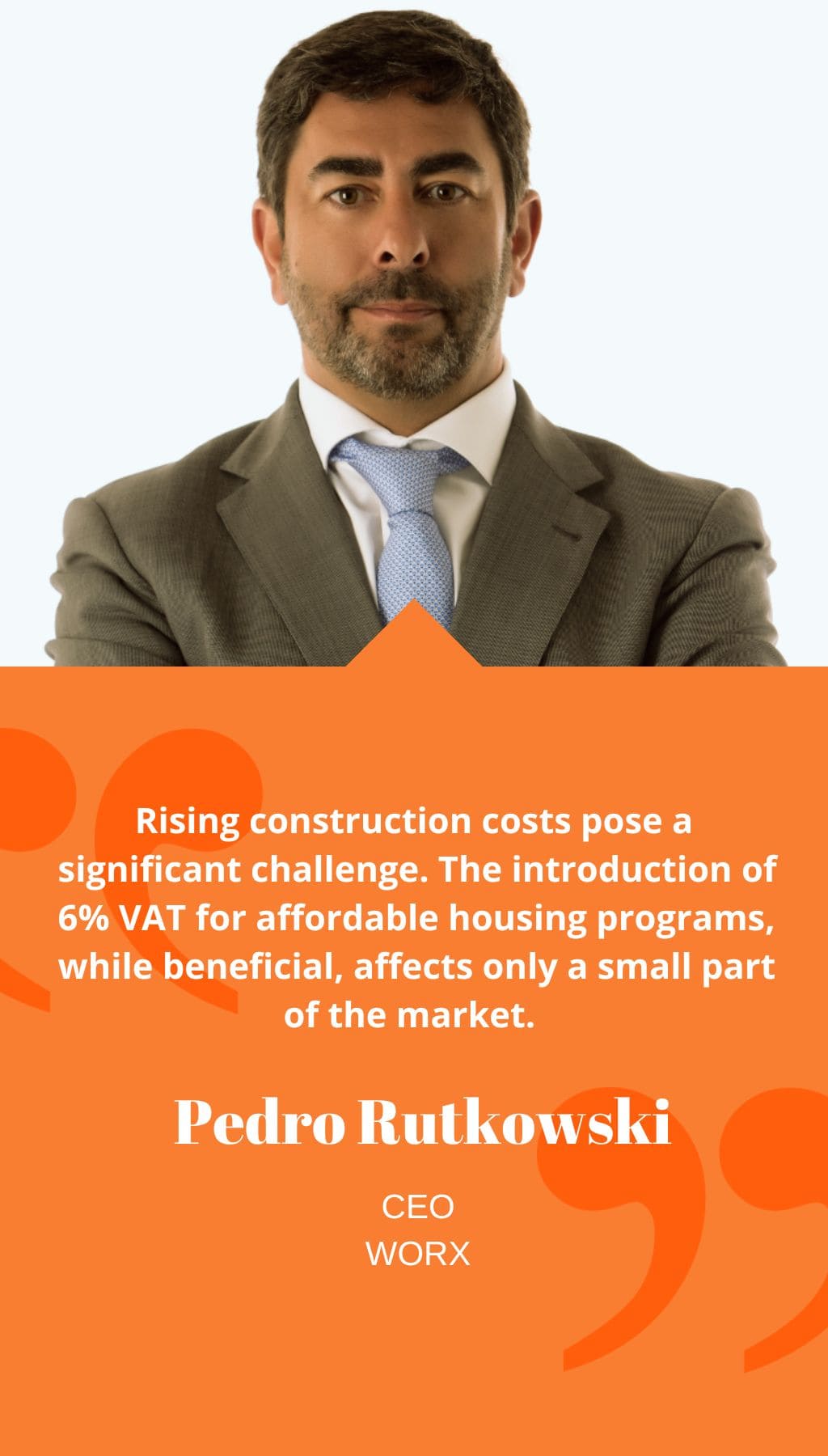
- Portugal | 14 April 2022

Can you give us a snapshot of Worx and its current position in Portugal’s real estate market?
Our roots are deeply Portuguese, and for over 25 years, we’ve utilized our expertise to serve international investors and developers. Collaborating with BNP Paribas Real Estate has enabled us to have a global presence. Being the first RICS-regulated company in Portugal is a significant accomplishment. We’ve built a versatile team capable of assisting across various real estate sectors, from research and urban regeneration to tourism and tenant representation.
What significant changes have you noticed in the market recently, especially concerning Worx’s business?
The market experienced a 30% downturn, with nearly EUR 2.0 billion in Commercial Real Estate (CRE) investment. In 2021, the influx of foreign capital decreased from 90% to 80%, with more domestic investments as a reaction to closed borders. Despite global challenges, our capital markets and agency services remained in demand, keeping our revenue across sectors healthy. The most surprising shift was the increase in capital allocation to alternative segments, reaching 34% of CRE investment.
How did different real estate sectors fare during the pandemic?
Offices remained a preferred investment due to their reliability during remote work, growing by 17% in 2021. Industrial spaces excelled, driven by e-commerce, with a growing need for warehouse space. However, retail and tourism suffered significant setbacks, experiencing footfall declines. Yet, food & beverage and home decor segments flourished. Tourism revenue, though recovering, still trails pre-pandemic levels.
What challenges might new investors face entering the Portuguese real estate market?
Rising construction costs pose a significant challenge. The introduction of 6% VAT for affordable housing programs, while beneficial, affects only a small part of the market. Persistent taxation issues and lengthy project approval times due to licensing complexities also challenge new entrants. The residential market, while slowing in price growth, might face credit accessibility issues in 2022 due to changing borrowing conditions.
How favorable is the financing climate for new investments?
Financing generally favors investors seeking capital for quality developments. Environmental concerns and sustainability are pivotal in the market. New buildings must align with sustainability and renewable energy concepts to remain relevant.
What are your priorities for the next two to three years?
We’re seeking to solidify our presence in renewable energy through a partnership with Átomo Capital Partners. Expanding into property management services is another goal to diversify our portfolio.
Any final thoughts on Portugal’s real estate market?
Portugal’s market has grown substantially in recent years. The skilled, multilingual workforce here makes it incredibly conducive for international business ventures.














